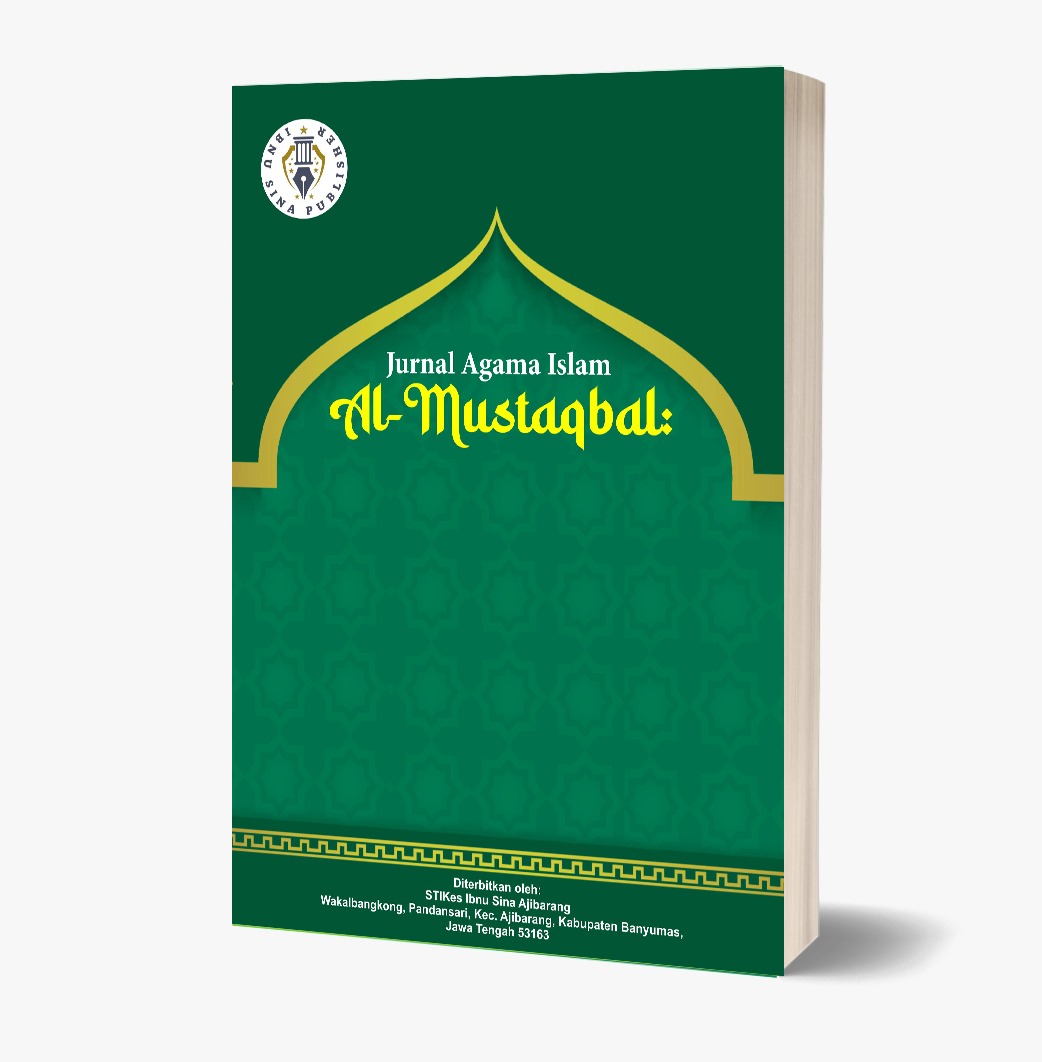Egoisme dalam Perspektif Hadis
DOI:
https://doi.org/10.59841/al-mustaqbal.v2i2.166Keywords:
Attitude, Egoism, HadithAbstract
Egoism is an attitude that prioritizes individual interests, this attitude is not in accordance with Islamic teachings. In Islam, egoism is strictly prohibited because it will have a negative impact on many people. There are many arguments from both the Qur’an and Sunnah which explain that egoism is very bad for all parties, whether individuals, groups, or even a country. Hadith also views that this attitude of egoism is very dangerous, as the Messenger of Allah conveyed a message to his people that in the future after he died, there would be egoistic anitudes, so be patient with him until we meet again at the lake. Egoism is very dangerous because it will cause several negative impacts, including: division, hostility, hatred, breaking ties and degrading each other. There are several ways to avoid egoism, including: Be patient, understand egoism towards yourself or others, pay attention to others, increase empathy, pay attention to cognitive bias, help others sincerely, and listen to other people who are talking or telling stories.
References
Arrasyid, H. (2019). Altruisme mahasiswa Psikologi Universitas Islam Negeri Maulana Malik.
Bukhāriy, A. ʻA. M. I. I. I. al-M. al-J. (1422 H). Al-Jāmiʻ al-Musnad al-Ṣaḥīḥ al-Mukhtaṣar min Umūr Rasūl Allāh ṣallā Allāh ʻalaihi wasallam wa Sunanih wa Ayyāmih (Vols. 1–9, M. Z. N. al-Nāṣir, Ed.). Dār Ṭauq al-Najāt.
Cahyani, N. S., & Rohmah, M. (2022). Moderasi beragama. Jalsah: The Journal of Al-Quran and As-Sunnah Studies, 2(2). https://doi.org/10.37252/jqs.v2i2.342
Harahap, S. M., Siregar, F. A., & Harahap, D. (2022). Nilai-nilai dan praktik moderasi beragama berbasis kearifan lokal di Sumatera Utara.
Hisnuddin. (2020). Pendidikan cinta kasih perspektif Jalaluddin Rumi.
Ibn al-Ḥajjāj, M. (1955). Al-Musnad al-Ṣaḥīḥ al-Mukhtaṣar bi Naql al-ʻAdl ʻan al-ʻAdl ilā Rasūl Allāh ṣallā Allāh ʻalaihi wasallam (Vols. 1–5, M. F. ʻA. al-Bāqī, Ed.). Dār Iḥyā’ al-Turāṡ al-ʻArabiy.
Ira, M. (2018). Studi hadis tematik. Al-Bukhari: Jurnal Ilmu Hadis, 1(2), 189–206.
Ismail, I. (n.d.). Outline hadis tematik. https://bit.ly/Outlinehadistematik
Mahmud, A. (2021). Akhlak dan ego (dalam individu, masyarakat dan kebangsaan). UIN Alauddin, 15(1), 29–40.
Mila Amelia, Firdaus, A., Rosyadi, S., Millah, M., & Alif, M. (2024). Education for women: A thematic hadith study with a grounded theory approach. Al-Bukhari: Jurnal Ilmu Hadis, 7(1), 63–77.
Mukhtar, M. bin. (2021). Kepedulian sosial dalam perspektif hadis. Jurnal Ushuluddin: Media Dialog Pemikiran Islam, 23(1), 82–93. https://doi.org/10.24252/jumdpi.v23i1.19170
Puti, A. O., & Armariena, D. N. (2019). Kajian emosionalisme dan egoisme dalam novel Pemimpin yang Telanjang karya Sally Mackenzie. Sastranesia: Jurnal Program Studi Pendidikan Bahasa dan Sastra Indonesia, 7(2), 62. https://doi.org/10.32682/sastranesia.v7i2.774
Ummah, M. S. (2019). Metodologi penelitian kualitatif & grounded theory. Sustainability (Switzerland), 11.
Zainun, P., Fakih, K., Syarip, E., & M. Ag, K. P. (2024). Pemikiran Sutan Takdir Alisjahbana dan Nicoulas Driyarkara tentang etika (Tesis Magister, Sekolah Pascasarjana UIN Syarif Hidayatullah Jakarta).

















